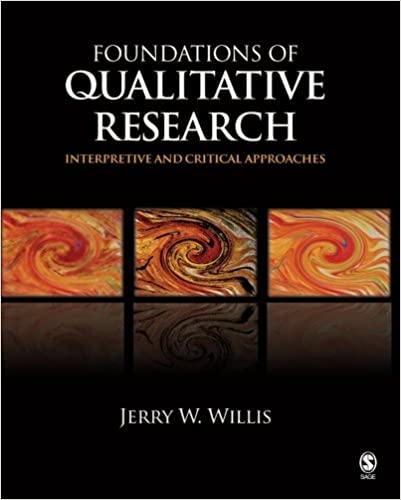Question
Overview: As you have reflected on your work up until the present, one aspect that has not been addressed is leadership. As a leader in
Overview:
As you have reflected on your work up until the present, one aspect that has not been addressed is leadership. As a leader in the field, it's important to take all information and a path for moving forward. you will answer a reflective paragraph on each of the components of this course, connected with Professional Standards and the other NAEYC foundational documents.
In your answer paragraph that details what you knew when you began your ECE journey to the present for each professional standard. What did you know or not know at the time? What do you know and not know now? Be sure to address all components for each standard in your paragraph.
The standards are included here for your reference.
Standard 1: Child Development and Learning in Context
1a. Understand development birth through age 8 across physical, cognitive, social/emotional, and linguistic domains, including bilingual/multilingual development.
1b. Understand and value each child as an individual with unique developmental variations, experiences, strengths, interests, abilities, challenges, approaches to learning, and with the capacity to make choices.
1c. Understand the ways that child development and the learning process occur in multiple contexts, including family, culture, language, community, and learning settings, as well as in larger societal context that includes structural inequities.
1d. Use knowledge about development, individual children, and cultural contexts to make evidence-based decisions that support each child.
Standard 2: Family-Teacher Partnerships and Community Connections
2a. Know about, understand, and value the diversity of families.
2b. Collaborate as partners with families in young children's development and learning through respectful, reciprocal relationships and engagement.
2c. Use community resources to support young children's learning and development and to support families, and build partnerships between early learning settings, schools, and community organizations and agencies.
Standard 3: Child Observation, Documentation, and Assessment
3a. Understand that assessments (formal and informal, formative and summative) are conducted to make informed choices about instruction and for planning in early learning settings.
3b. Know a wide range of types of assessments, their purposes, and their associated methods and tools.
3c. Use screening and assessment tools in ways that are ethically grounded and developmentally, ability, culturally, and linguistically appropriate in order to document developmental progress and promote positive outcomes for each child.
3d. Build assessment partnerships with families and professional colleagues.
Standard 4: Developmentally, Culturally, and Linguistically Appropriate Teaching Practices
4a. Understand and demonstrate positive, caring, supportive relationships and interactions as the foundation of early childhood educator's work with young children.
4b. Understand and use teaching skills that are responsive to the learning trajectories of young children and to the needs of each child, recognizing that differentiating instruction, incorporating play as a core teaching practice, and supporting the development of executive function skills are critical for young children.
4c. Use a broad repertoire of developmentally appropriate, culturally and linguistically relevant, anti-bias, evidence-based teaching skills and strategies that reflect the principles of universal design for learning.
Standard 5: Knowledge, Application, and Integration of Academic Content in the Early Childhood Curriculum
5a. Understand content knowledge - the central concepts, methods and tools of inquiry, and structure - and resources for the academic disciplines in an early childhood curriculum.
5b. Understand pedagogical content knowledge - how young children learning in each discipline - and how to use the teacher knowledge and practices described in Standards 1-4 to support young children's learning in each content area.
5c. Modify teaching practices by applying, expanding, integrating, and updating their content knowledge in the disciplines, their knowledge of curriculum content resources, and their pedagogical content knowledge.
Standard 6: Professionalism as an Early Childhood Educator
6a. Identify and involve themselves with the early childhood field and serve as informed advocates for young children, families, and the profession.
6b. Know about and uphold ethical and other early childhood professional guidelines.
6c. Use professional communication skills, including technology-mediated strategies, to effectively support young children's learning and development and to work with families and colleagues.
6d. Engage in continuous, collaborative learning to inform practice.
6e. Develop and sustain the habit of reflective and intentional practice in their daily work with young children and as members of the early childhood profession.
Step by Step Solution
There are 3 Steps involved in it
Step: 1

Get Instant Access to Expert-Tailored Solutions
See step-by-step solutions with expert insights and AI powered tools for academic success
Step: 2

Step: 3

Ace Your Homework with AI
Get the answers you need in no time with our AI-driven, step-by-step assistance
Get Started


